Been my observation that's also entailed in conventional war -- different levels to be sure but the issues are still there.At the risk of inviting a fire storm, I suggest the level of training and capability of the opposition has a strong bearing on whether those things need to be considered and how much rolling and blasting one is going to do. A fairly low level opponent allows unthinking violence -- you try that with one that thinks and is equipped as well or better than you and you're going to get a shock. In Korea, as my ever wise Company Gunny pointed out, "Them Chinese ain't got a lot of stuff we got but they're smart, shifty and there sure is a bunch of 'em and they won't quit."These are issues that I never needed to consider as we rolled across the Kuwait desert and blasted the s*** out of everything that appeared, human and machine. However, on Grenada we had to much more circumspect. I strongly disagree with that-- while conceding that you are right . What you say is true because in most units, that's the way it's done because it's easier on the NCOs and Officers.My feeble dissertation was an attempt to point out that at the lowest level of combat Soldiers and Marines obey the orders given, almost without question.
I strongly disagree with that-- while conceding that you are right . What you say is true because in most units, that's the way it's done because it's easier on the NCOs and Officers.My feeble dissertation was an attempt to point out that at the lowest level of combat Soldiers and Marines obey the orders given, almost without question.
That's also in large measure because we have not done in any war time training since 1945 -- the mothers of America don't want the training loss that realistic training would force so we soft pedal and half train people. We train better now than we ever have -- far better, in many respects -- than when I went through P.I. but we're still only half training the kids.
There are some units that encourage Snuffy to think and while that puts a bunch more work on the chain, those units function better. In fairly low level combat such as that of the last 30 years, that's okay that just some units function really well instead of adequately -- but in a major war, that will not be adequate. EVERYBODY has to think. In COIN and low tempo Ops, the NCOs can direct Joe -- given a major war of movement, they can't-- Joe has to know what to do. So do the NCOs -- and the LTs; the Bn Cdr won't be micromanaging...True -- and I submit that to really do that well takes more training, smarts and effort that does the COIN bit. COIN operations are a pain in the tail, are tedious, frustrating and challenge your social skills. But they are not complex, they're just common sense and decent behavior.If the orders are to lay waste to every living thing in your path, we certainly can do that; but if the orders are to be nice to all the people because we're here to protect them (even though we may suspect some are assisting the bad guys), we can do that too. The former requires the synchronization and orchestration of a very deadly war machine, the latter a more attuned sense of social, political, and ideological issues. While in both instances Soldiers and Marines will follow orders and utilize basic combat skills, in the first instance, that of 'conventional battle,' there are additional very specific skills needed to ensure the that the plethora of weapons systems are properly employed.Not a bad simile but I strongly suggest you consider the quality of the opposing Aussie Rules team -- that makes a very significant difference in the way your teamwork and synergies work out -- and you find that it takes a whole bunch more than brute strength to eke out a draw, much less a crush against a team that's as smart and strong as you are. One that will pay no attention whatsoever to attempts to impress...I guess to throw in an awkward sports analogy: 'conventional' warfare is akin to Aussie Rules Football: you use teamwork, synergy, and brute strength to crush your opponent; while COIN is akin to ballroom dancing: you use teamwork, synergy, and an understanding of the judges to impress them. Good shoes and a flashy outfit help too.
Those folks that say COIN is the graduate level of war are, I believe, wrong. Major conventional operations against a peer opponent as well or better equipped than you are the graduate level, fail the test and you're out-- COIN against even skillful opponents but basically low tech equipped is all the anxiety, tedium, squabbles and pain of the 8th grade all over again. Neat thing is you can get a few Ds and Fs and still move on...


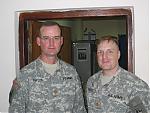



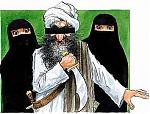

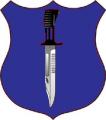

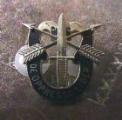
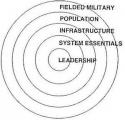



Bookmarks